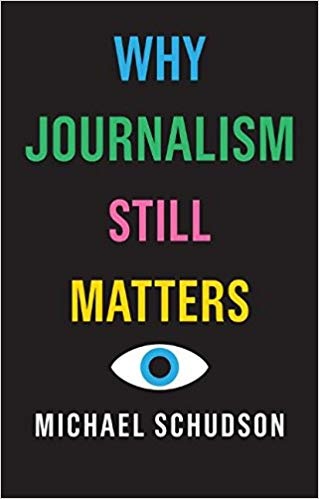This is the last article you can read this month
You can read more article this month
You can read more articles this month
Sorry your limit is up for this month
Reset on:
Please help support the Morning Star by subscribing here
Why Journalism Still Matters
by Michael Schudson
(Polity, £15.99)
MICHAEL SCHUDSON is a professor at the Columbia School for Journalism and his book is very much a reflection of a US-oriented discourse.

He argues that journalism is essential for a functioning democracy — undoubtedly true in principle — and sees “professional” journalists as akin to medical practitioners who take the Hippocratic oath. They are individuals with a higher calling, somehow apart from the general public in pursuing unadorned truth and disavowing their own prejudices in that pursuit.
Journalism, he asserts, is as “important as an institution of organised scepticism that is central to democratic governance today,” although he feels that the term democracy could better be understood as “liberal democracy.”
Unfortunately, this is yet another example of transatlantic vocabulary that does not easily cross the pond. In Europe, “liberal” invariably has a concrete party-political connotation that cannot necessarily be equated with the holding of left-wing or progressive views.
Schudson sees journalists as the only group of people able to hold those in authority in a democratic society to account. He fails to recognise, though, that journalists are selected, albeit from a narrow pool, within the general population and are invariably employed by powerful media barons who expect them to toe the line — he who pays the piper, calls the tune.
How many journalists can afford to pursue their own investigations or draw their own conclusions if these happen to be at variance with those of their employer?
The author teaches his students that there are two sacred words in the profession — “report,” report against your own assumptions, he says, and “story,” which “requires choice, selection, judgement.
This need not be and should not be personal judgement or partisan judgement but professional judgement,” he states blandly.
Journalists should follow facts, irrespective of where they lead the journalist’s own political views, he asserts. All very altruistic, but totally at variance with the real world of journalism today.
The author totally ignores class issues. From what background are journalists selected and how does their work relate to the ownership of the media for which they work? How does class background affect how one sees reality and how it is reported?
There are “facts” and there is “fake news” but what for a journalist is a relevant fact and not fake news will very much depend on a political and class viewpoint.
An additional, if minor, carp is that, as a professor of journalism, Schudson should double-check his own text for grammatical solecisms before it goes to print.










